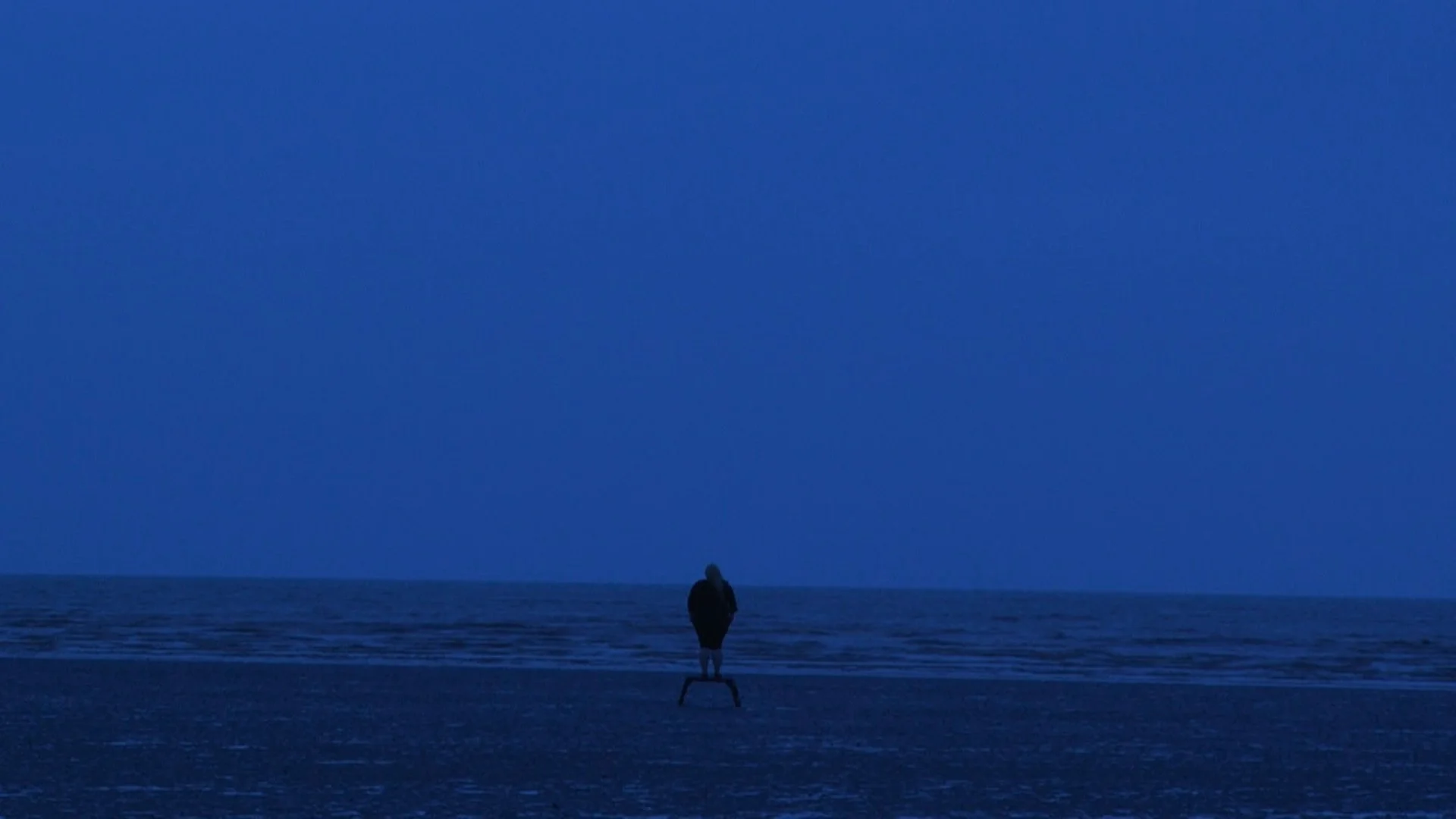ABOUT THE ARTIST
I work predominately with film and installation, often filming in isolated and secluded places or places perceived to be so by the viewer. My work aims to raise a flux of visceral emotions relating to identity and basic human emotions and concerns.
Gemma Copp is a Welsh artist, who currently resides in Swansea, her city of birth. Graduating with a BA in Fine Art from Swansea Metropolitan University in 2006, Copp went on to complete an MA in Contemporary Dialogues in 2009 at the same University. Copp has recently taken part in the Glynn Vivian’s Artist in Residence program. Copp has shown work nationally and internationally and has recently exhibited work at the Talbot Rice Gallery in Edinburgh, and at the Mannheim Film Festival in Germany, where she received a special commendation from the judges. She was awarded Welsh Artist of the Year in 2012.
Gemma Copp, Leaving Tide, 2014, Film, 40 mins.
ABOUT THE WORK
With its continuous body of salt water covering most of the earth’s surface, the sea is seen as a geophysical body with the tidal rhythms acting as its lungs. The sea is a constant reminder of life, where its continuous tidal motions breathe existence into nature’s habitat and fuel the cycle of regeneration. But what if that were to stop? Life is given value because of its transient and impermanent nature, and the coastline can be just as fragile and ephemeral. What if the rhythm were to be damaged and the cycle broken? Would nature’s balance disappear with the low tide, never to return? Within the piece you see a melancholic, motionless figure, dressed in black, with her back to the viewer. It appears that she is stood, balancing on top of the sea, as the waves repeatedly roll around her. The sea appears to be in balance at this point but as the once high tide turns to low tide and disburses around the figure, it gives the impression that something menacing is about to happen. The colour and focus of the horizon, that once was clear and inspiring, creating feelings of happiness and limitless possibilities, instead now offers the viewer visceral feelings of concern and desolation.



